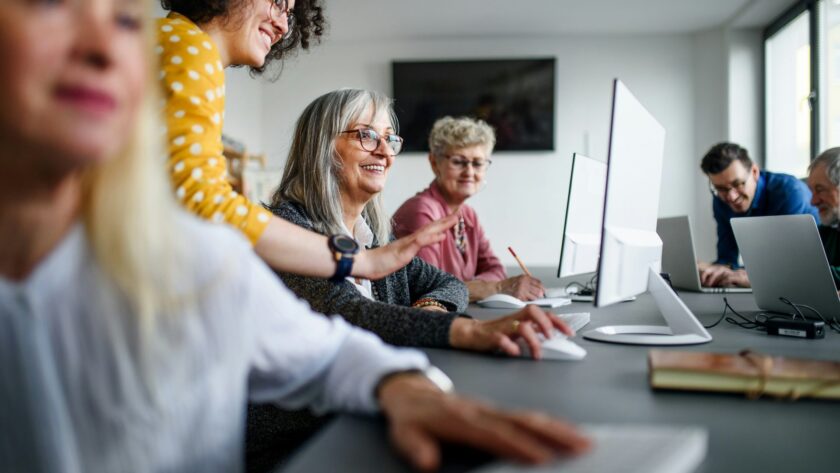No one should have to go through life’s struggles alone. Whether you’re facing grief, anxiety, chronic illness, or any other challenge, the weight of it can feel unbearable when carried in isolation. That’s where support groups and workshops come in—they offer a space where people can connect, share, and heal together.
If you’ve ever considered joining one but weren’t sure if it would really help, you’re not alone. Many people hesitate at first, wondering if opening up to strangers will make any difference. The reality? These spaces can be life-changing. They create a sense of belonging, provide useful tools for coping, and remind you that you’re not in this alone.
The Power of Shared Experience
There’s something deeply comforting about talking to someone who truly understands what you’re going through. Friends and family can be supportive, but they might not fully grasp your experience if they haven’t been through it themselves. In support groups and recovery workshops, everyone is there because they share a common struggle.
This shared experience fosters a sense of connection and validation. You no longer feel like you have to explain yourself or worry about being misunderstood. Others in the group get it—often without you having to say much at all. This can be a powerful relief, reducing feelings of isolation and shame.
Workshops: Learning and Growing Together
While support groups focus on emotional connection, workshops take it a step further by incorporating education and skill-building. These structured sessions are led by professionals or experienced facilitators who guide participants through topics like coping strategies, mindfulness techniques, and communication skills.
Workshops provide a hands-on approach to healing. Rather than just discussing feelings, participants actively learn new ways to manage their challenges. Whether it’s a stress-reduction workshop, a class on navigating grief, or a session on building self-confidence, these experiences offer practical tools that can be applied in everyday life.
How Support Groups and Workshops Complement Each Other
Support groups and workshops are often used together, creating a well-rounded approach to healing. Support groups offer ongoing encouragement, a place to be heard, and emotional validation. Workshops, on the other hand, provide structured learning experiences that empower individuals to take action in their healing journey.
Many people find that participating in both offers the best of both worlds. A support group provides an emotional connection and sense of belonging, while a workshop equips them with skills to navigate their challenges more effectively.
Breaking the Fear of Opening Up
For many, the idea of speaking about personal struggles in front of others feels intimidating. What if it’s awkward? What if no one else understands? These fears are completely normal. But the truth is, support groups and workshops are designed to be safe, judgment-free spaces.
Most groups have ground rules to ensure everyone feels respected and comfortable. No one is forced to share if they’re not ready. Sometimes, just listening can be incredibly healing. Over time, as trust builds, opening up becomes easier—and often, it leads to deeper healing.
Who Can Benefit from Support Groups and Workshops?
The short answer? Almost anyone. Support groups and workshops exist for a wide range of challenges, including:
- Mental health struggles – Anxiety, depression, PTSD, and more.
- Chronic illness and pain – Learning to cope with long-term health conditions.
- Grief and loss – Processing the loss of a loved one in a supportive environment.
- Addiction recovery – A space for those working toward sobriety.
- Caregiving challenges – Support for those caring for a loved one.
- Personal growth – Building confidence, managing stress, or improving relationships.
Whatever you’re facing, there’s likely a group or workshop out there that can help.
The Role of Trained Facilitators
One of the reasons these spaces are so effective is because they’re often led by trained facilitators. These leaders help guide discussions, provide educational insights, and ensure that the space remains supportive and respectful.
In workshops, facilitators bring expert knowledge, helping participants learn practical strategies they can apply in daily life. In support groups, they create structure, ensuring that everyone has a chance to speak (if they choose to) and that conversations remain productive and empathetic.
The Ripple Effect of Healing Together
When people heal together, the impact extends beyond the group itself. Participants often take what they’ve learned and apply it in their personal lives, improving relationships, handling stress better, and even helping others who are going through similar experiences.
Additionally, being part of a group can help break societal stigma. When people talk openly about struggles like mental health, grief, or chronic illness, it normalizes these experiences and encourages others to seek support as well.
Taking the First Step
If you’ve been considering joining a support group or workshop, now is the perfect time to explore your options. It might feel like a big step, but remember—no one walks in feeling completely comfortable right away. Most people start with uncertainty, but they stay because of the real, lasting impact these groups have.
Whether you join an in-person group, attend an online session, or participate in a structured workshop, the important thing is that you’re giving yourself the support and tools to heal. And no matter what you’re going through, you don’t have to go through it alone.




